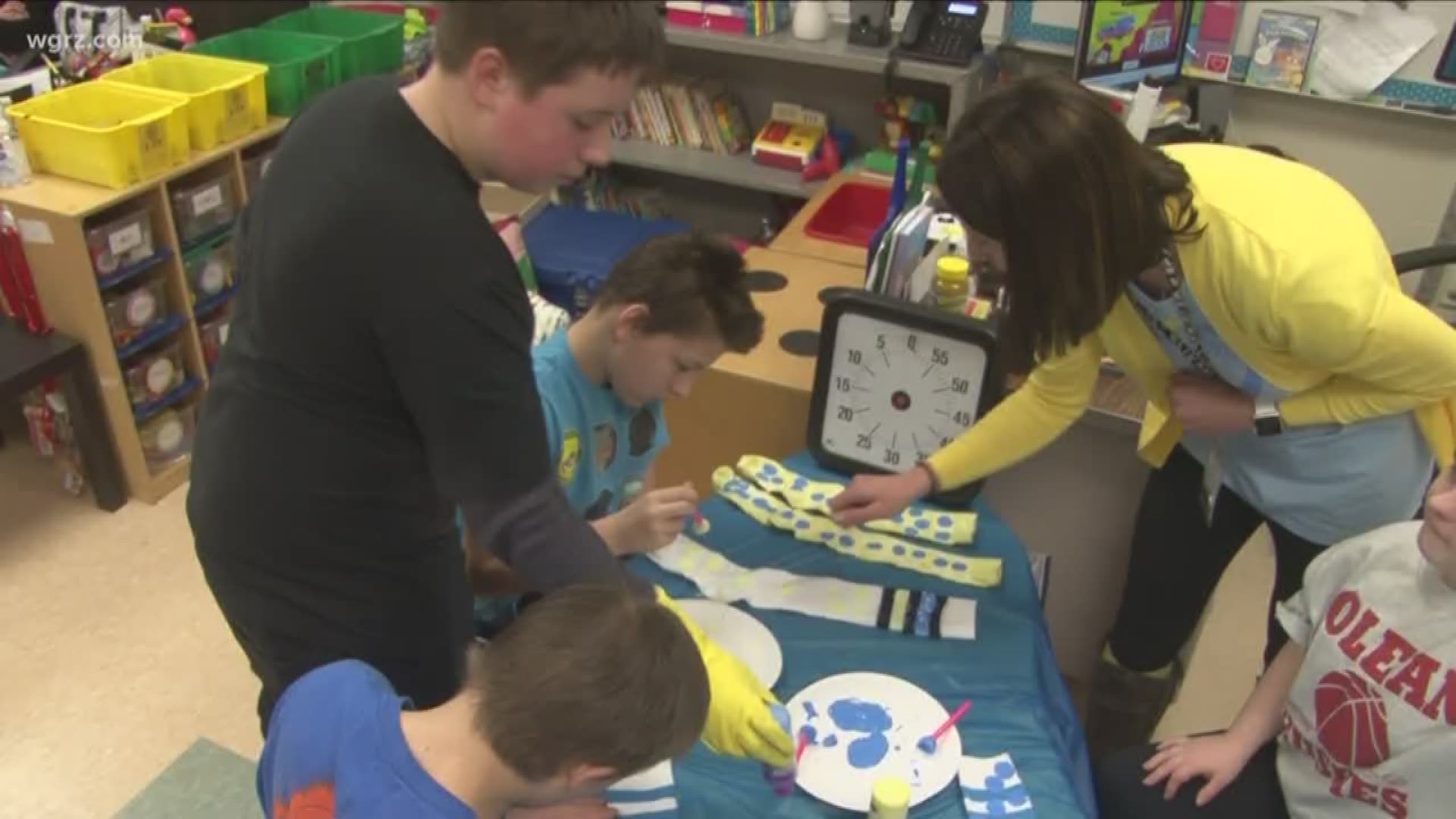Thursday, March 21st, is World Down Syndrome Day. In Olean, one class is tie-dying socks with the hopes of raising awareness and helping to end the stigma surrounding Down syndrome, and that's why they are being celebrated as "WNY's Great Kids."
World Down Syndrome Day is celebrated around the world every year on March 21 (3/21) because it represents the triplicated 21st chromosome which can cause down syndrome. Many mark the day and try to draw attention to it by wearing brightly colored clothing and mismatched socks.
In Angela Mest's special needs life skills classroom at Olean Middle School, the students have spent weeks tie-dying dozens of pairs of socks for the occasion.
"We have students who are doing the rubber-banding and the tieing. We have students that are doing the dying. We have students that are doing the decorating, and then bagging them for delivery," said Mest.
They plan to deliver more than 60 pairs of socks at $10 a pair to faculty and staff in Olean. Every dollar they earn, they get to spend themselves.
"We will go out into the community, go to the movies, go to 7-11 for a Slurpee, go to the ice cream store, so that they know that they raised this money and they will have something in return for it," she said.
For Olivia Hammond, who lives with Down syndrome, this project in the classroom builds independence, and her mom says it helps prepare her for life outside the classroom.
"It teaches her life skills. It teaches her how to react and behave and respond and how to handle things so that she can be prepared for the real world," said Rene Hammond, Olivia's mom.
Just like each one of the students, each one of the tie-dye socks will be unique and different and beautiful.
"People with down syndrome are full of love," said Hammond. "I want people to know that they are just like any other child."
"They may learn in a different way. It may take them longer to pick up some of the skills, but they can still pick up the same skills that their typical and non-disabled peers can and have the same experiences out in our community," said Mest.

